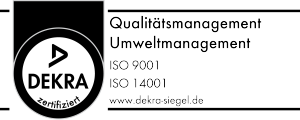Retail real estate without a sustainability strategy threatened to lose 15 percent of its yield
- 8th Retail parks Report on sustainability presented by MEC together with Dr. Lademann & Partner, Nuveen Real Estate, Savills and WISAG 80 percent of investors take ESG criteria into account "Sustainability is the gamechanger of the retail real estate industry
- 80 Prozent der Investoren berücksichtigen ESG-Kriterien
- „Nachhaltigkeit ist Gamechanger der Handelsimmobilienbranche“
80 percent of all institutional investors already take sustainability criteria into account in their investment decisions. Retail parks are therefore called upon not to rest on their pioneering role among all retail properties as Investors' Darlings, but to react specifically to the new requirements. Real estate managers who fail to act early on in this regard risk losing between 8 and 15 percent of their value.
These and many other findings relating to ESG (Environment, Social, Governance) in retail real estate are presented in the new Retail parks Report, which MEC presented today together with its partners Dr. Lademann & Partner, Nuveen Real Estate, Savills and WISAG. The market study, which is being published for the eighth time this year, outlines in 90 pages the influence of sustainability on the planning, management and future of retail real estate.
"In the vortex of the Corona crisis, sustainability seems to have been lost sight of in many places - quite wrongly. Because especially in times of upheaval, it is suitable as a yardstick for future-oriented management," says the COO of MEC Christian Schröder. "Sustainability is the big gamechanger in retail real estate of all asset classes. The industry should see the new requirements from politics, society, investment companies and retail companies as a wake-up call to make the centers fit for the future - for the benefit of investments, the environment and society.
How the strict sustainability rules are revolutionizing the retail real estate industry
- How the strict sustainability rules are revolutionizing the retail real estate industry
- Why the pressure on retail real estate is increasing
- What new demands do investors, retailers and consumers place on sustainable centers
- How Green Management helps decide the future viability of the center industry
FMZ: Using pole position in the race for sustainability
In his current market analysis Savills warns the asset class of retail parks not to rest on their pole position. It is true that retail parks have increasingly become the mainstay of the investment market for retail real estate in this country. For several years now they have accounted for at least 15 percent of the total transaction volume of retail real estate, and the long-term trend arrow continues to point clearly upwards. However, in order to defend this pioneering role, it is becoming increasingly important to prepare early on for the new demands of investors in the competition for investor funds. "ESG criteria will become increasingly important in purchase decisions. In the long term, it should therefore pay off to take them into account today," says Jörg Krechky, Head of Retail Investment Services Germany at Savills. "Only those who make an early start in the direction of ESG will retain the favor of the investors in the long term".
Impact Investing as a new trend
For property owners, ESG is only the first step. As Nuveen Real Estate describes in its report article, trendsetters are increasingly focusing on the concept of impact investing. In addition to the financial return, they are looking at the potential added value for the environment and society. Behind this is the conviction that investments can also be successful if they simultaneously take into account the long-term needs of the community, boost employment and provide basic services. "Investors will thus be able to play their part in promoting social inclusion by investing in underserved regions and focusing on buildings that meet the real needs of the community," explains Nuveen's Senior Portfolio Manager Real Estate Europe Tanja Volksheimer. "The Covid 19 pandemic has most likely accelerated this development. Especially in these times, good corporate management tries to achieve a balance between the needs of all stakeholders while not losing sight of long-term value creation". A best-practice example of an investment in a senior citizens' residential home that is aligned with the UN sustainability goals describes what impact investing looks like in practice.
Corona as a possible turbo for sustainable planning law
The sustainability of centers is often decided already in the planning phase, as the real estate consulting firm Dr. Lademann & Partner explains in its article. "But building planning law is only sustainable if it allows retail locations to breathe the air," explains managing partner Uwe Seidel. Sustainably planned retail parks therefore have the flexibility of species-appropriate further development, which is something that has so far been the case for very few of them in this country. "Corona could serve as a turbo for future-oriented changes here", says Seidel. For example, the FMZs have proven how crisis-proof they are with their high level of aftercare during the pandemic. Now it is up to the local authorities to make sustainable retail parks possible through flexible planning under building law, which will secure the future of lively retail locations in the cities, the FMZ Report demands.
Green Facility Management (FM) acts like an attractiveness booster
Sustainable building management contributes significantly to the future viability of retail parks. This can be seen from the latest WISAG Sustainability Radar presented in the FMZ Report. According to the report, 72 percent of those surveyed from the retail park and shopping center sector stated that Green FM also pays off in terms of the attractiveness of the workplace. Sustainable center management measures range from active energy management and the use of ecological consumables, equipment and processes to the reduction of water consumption and ecological waste management. "The key to greater sustainability is the intelligent intermeshing of ecological, economic and social aspects," writes Joaquin Jimenez Zabala, Sales Manager Shopping Center at WISAG. It is not just a matter of reducing climate-damaging CO2 emissions and saving resources through efficiency and technology. "Those who rely on sustainable facility services secure much more: attractive jobs and the future viability of their retail property," says Jimenez Zabala.
Further articles and examples of best practice in the FMZ Report:
- In an introductory article, MEC classifies the topic of sustainability for retail real estate as a real revolution and shows how the industry can respond to this wake-up call.
- The article by INYTY Handelsimmobilien Beratung describes how retail parks with e-mobility and photovoltaics can raise new potentials for their frequency and rental income.
- The EHI Retail Institute presents the most important levers of retail to promote sustainability.
- The imtargis Retail Assets examines which factors influence the market value of retail parks in terms of sustainability - and which do not.
- From a consumer perspective, MEC points out the desire and reality of ethical consumption.
- Nuveen Real Estate clarifies misunderstandings and hidden benefits of retail parks in terms of sustainability.
- The sustainability and communication consultancy kap N outlines the paths to successful sustainability reporting for retail properties.
About the retail park report
The FMZ Report will be published in its eighth edition this year. Since 2013, it has been devoted to a current focus topic each year, which is examined from the perspective of various guest authors and thus aims to stimulate discourse in the industry. You can find this year's report online at https://www.mec-cm.com/fachmarktzentren-in-deutschland.html


